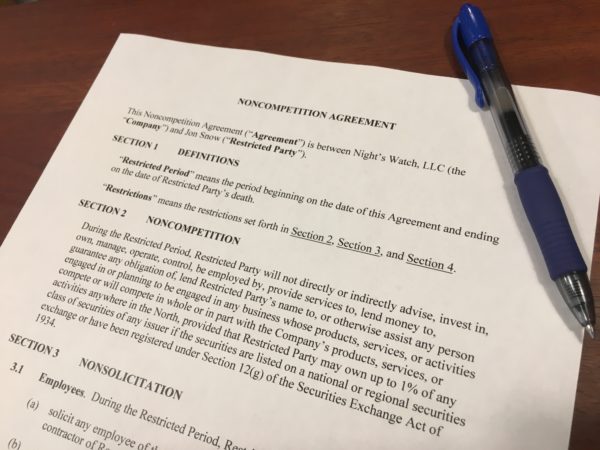Oregon Cannabis Companies Take Note: Noncompetition Provisions May Become A Thing Of The Past

In many states, such as California, noncompetition provisions are flat out prohibited
Our Oregon cannabis lawyers are often asked to include noncompetition provisions in employment agreements to ensure our cannabis clients don’t lose top talent to their competition. In many states, such as California, noncompetition provisions are flat out prohibited. Though Oregon allows noncompetes in principle, the reality is they are still strongly disfavored by the courts and the legislature. An Oregon cannabis employer must jump through a number of hoops to get an enforceable noncompete, but even that looks likely to change.
In Oregon, noncompete provisions are governed by ORS 653.295, which provides some severe restrictions:
- At least two weeks before the first day of employment, a prospective employee must receive a written employment offer explaining that a noncompete will be required. Alternatively, a new noncompetition provision can be created when an employee receives a legitimate advancement, such as a promotion that expands job responsibilities to include protectable company information along with a raise.
- The employee must:
- have access to trade secrets; or
- have access to other competitively sensitive confidential business or professional information, such as product development plans, product launch plans, marketing strategy, and sales plans.
- Unless the employer is willing to pay 50% of the employee’s previous compensation during the noncompetition period then:
- The employee must be paid at least $62,000 annually (this is tied to US Census Bureau data, so will sometimes fluctuate).
- The employee must be engaged in administrative, executive, or professional work and
- perform predominantly intellectual, managerial, or creative tasks;
- exercise discretion and independent judgment; and
- earn a salary and be paid on a salary basis.
- The noncompete can only last 18 months after the termination of employment.
- The geographical area for noncompetition must be reasonable (“Southern Oregon” might be reasonable, “the Continental United States” is probably not).
To Read The Rest Of This Article On Canna Law Blog, Click Here






